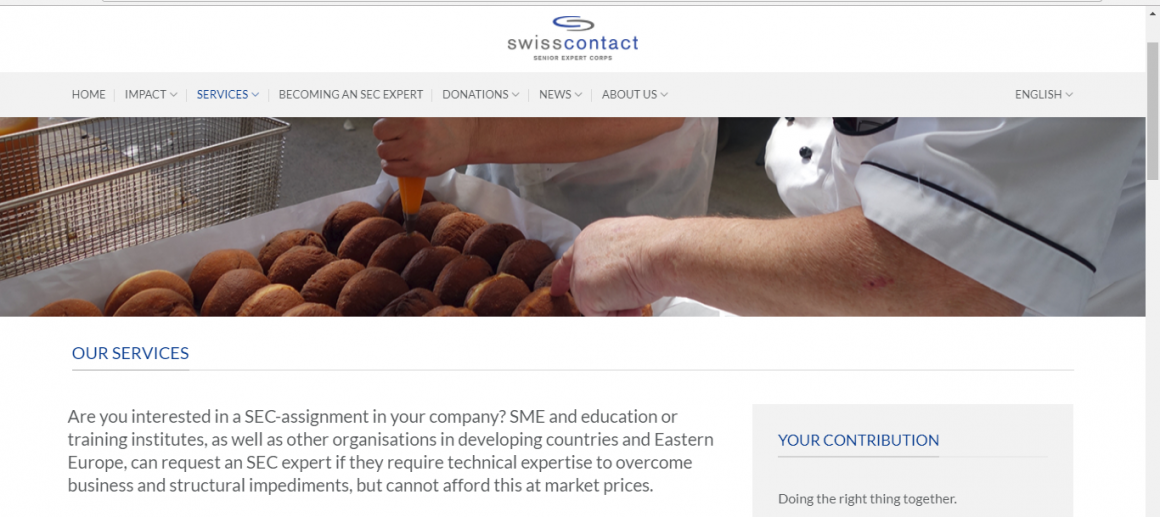By: Linda Baleta, Public Relations & Communications Expert
In a culture obsessed with doing just about anything to preserve youth, it is not easy to consider growing older as a gift.
“The energy levels are not the same”. “The options to go onwards grow thinner”. “Health deteriorates”. “When looks begin to change, it feels you are now almost invisible”. These are some of the most common threads in the conversation about ageing.
Is that all what growing older is?
I asked my friends, none above fifty, what “old age” was to them.
The younger friends seem to be terrified with the idea of years piling up on us; it feels to them that being old means there is nothing left of you anymore. Other friends’ acceptance of ageing depends on accomplishments and experiences in life, or lack thereof. For some others, it’s just another stage and it is up to everyone to make it worthwhile.
Indeed, growing older is both worthwhile and adventure. As life unfolds, we head into that new adventure, never ceasing to grow as individuals. One healthy response to growing older would be to become friends with the years that pass, and use the time well to cultivate a sense of responsibility and sharing with the society.
Growing older is an excellent opportunity to contribute to the world, as a more mature and definitely more experienced version of us. There is a lot we can all give back to the others, by way of supporting, providing perspective, mentoring and sharing knowledge accumulated through the years.
So, becoming older is a gift of many dimensions. Intergenerational mentoring and interaction is one such dimension.
Using a Lifetime of Experience in a Meaningful Way
The Senior Power
Swiss hotel expert Vreny Markovic-Reis is the right person to ask for professional advice on how turn a hotel or restaurant into a business success story. Having worked for 42 years in gastronomy, Vreny possesses the recipe to improve business operations, to what training is required for employees, or to come up with new ideas that make a business stand out.
Approaching retirement, Vreny knew that she could still contribute in her field of expertise. By chance, she came across a local newspaper article about the Senior Expert Corps (SEC) from Switzerland. She did some research, realizing the organization offered exactly what she needed: an opportunity to continue giving back to the society while doing something useful and meaningful.
On the first day of the retirement, Vreny received a phone call that launched her into the post-retirement path. Four months later, she was on a plane to Guatemala on her first SEC assignment, that was to be followed by others in Albania, Kosovo, Macedonia, Ukraine and Nepal.
“I always take assignments involving hotels and restaurants. That was my profession,” says Vreny, who during her mission in Kosovo worked with the restaurant Shtëpia Alpike Ranch in Peja.
At Shtëpia Alpike Ranch, Vreny worked with the owners on improving everyday business, how to increase sales and extend the season, which translates into more new jobs. For example, an earlier start in the morning and a larger variety of dishes makes guests more satisfied.
Arsim Gashi is one of the owners of Shtëpia Alpike Ranch, a family-run business. For the Gashis, Vreny’s assignment was crucial to bring their service up to the next level, even after nearly 6 years of being active.
“Vreny showed us how to do things differently and in a more efficient way. We changed the way we had been working so far: how to set the table, how the waiting staff conduct themselves, how to place utensils around the kitchen so the workflow is more efficient, and management in general,” says Arsim. “We are grateful for this opportunity. The experience with Vreny was just great; she was very professional with great personal interaction skills. This support meant a lot for us and our business.”
Vreny is part of more than 700 retired technical experts from craftsmen to hotel managers to marketing specialists. These experts voluntarily make their knowledge and time available as short-term consulting assignments to small and medium enterprises and institutions in developing countries and Eastern Europe.
Since its inception in 1979, SEC experts have provided worldwide roughly 800,000 hours of voluntary work, estimated to nearly CHF 30 million. The Senior Expert Corps is a project of Swisscontact. Since 1993, the project has been supported by the Swiss Agency for Development and Cooperation (SDC).
As Vreny says, “SEC is a win-win situation for both parties. I have the chance to see a new country and learn about new customs, traditions and cultures. The business gets a new and neutral view of the business and ideas for improvement. We can learn from each other: I learn to understand their life, and they learn from my long experience.”
Harnessing the experience and specialized knowledge of retired professionals is an added value to our society.
BOX
Vreny’s expert tip: In gastronomy, attention to detail such as presentation of the dishes and a good decoration to create an atmosphere is very important.
BOX
Learn more about SEC
www.seniorexpertcorps.org
BOX
Elfi Schaller is a SEC expert for textile businesses. She learned about this service from a friend, and ever since, Elfi has been to Bolivia, to Kathmandu (Nepal), where she helped start up a fashion college and on three assignments to Kosovo. While in Kosovo, she worked with In Design, a professional printer and producer of promotional products, seeking to start a new fashion brand with focus on sportswear collection. Elfi’s expert advice consisted in:
- Creation of the pattern for new brand products (shirts and pants)
- Grading for all needed sizes for men and woman
- Checking the fit for each garment for men and woman
- Manual for perfect workmanship for each garment
- Tools to optimize the production process in order to save money
- Better market positioning through different marketing tools
A Story from the Field
A retired economist and management consultant, Peter Guenter, now a Senior Expert Corps member, has been sharing his knowledge and expertise around the globe since 2009. He has supported companies in Asia, South America, Africa and Europe (the Balkans).
The businesses he has supported are as varied as the countries he has been to: beverages, solar panels, agricultural products, wineries, and even a fast food chain.
Peter says that the idea behind Senior Expert Corps is fascinating: passing the know-how and experience to support small and medium sized businesses in need in developing countries and emerging markets, in order to develop growth strategies, and doing that free of charge.
In Kosovo, Peter’s assignment was with the women farmers’ cooperative of Krusha e Madhe. “This all-female company instinctively made many right decisions, like creating jobs for the women in the village.” These women process local agricultural commodities and sell these specialties made of peppers, cabbage, cucumbers and tomatoes in branded jars or cans.
The women farmers’ cooperative of Krusha e Madhe is already a well-known brand name in the market of Kosovo both for its quality traditional products and the history behind the enterprise. The cooperative was founded by the widowed women of Krusha e Madhe, who lost the males of their families during the war, and had to pick up the pieces and start the new lives being the sole providers of their families.
During this assignment, Peter collaborated with the head of the cooperative, Fahrije Hoti, whom he considers to be “the incredible effective initiator of this business.”
Regarding the assignment, Fahrije Hoti says the reason why they requested the services of a SEC expert primarily focused on the marketing and branding aspect of their products. Upon completion of the assignment, the Krusha e Madhe cooperative had a written business plan and a future-oriented growth strategy. The results of Peter’s advice were immediately noticed with the new and improved look of the products, and better promotion in the local market.
(Full statement of Fahrije Hoti can be accessed here https://seniorexpertcorps.org/en/wirkung/kundenstatements/)
Peter says, “The strategy for the cooperative requires financial means to reach its goals. In order to promote growth of companies like Krusha e Madhe and subsequently create jobs in the region, Government support is crucial.”





